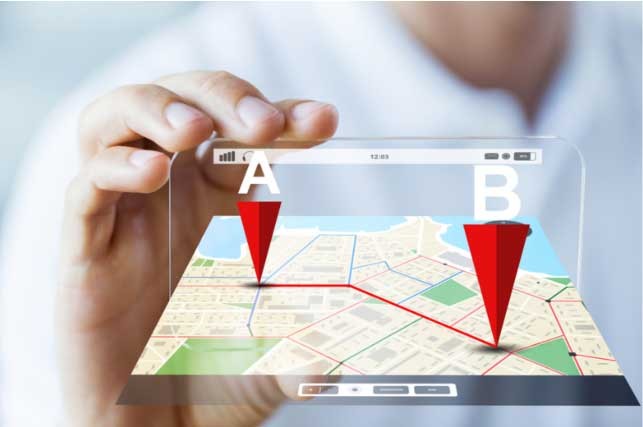Coronavirus, Covid-19, is rampaging through the whole planet.
At the time of this writing, the number of cases reached almost 1,3 million, with more than 68,000 deaths.
Covid-19 is present in 208 counties and territories.
In other words, coronavirus is reached virtually every corner of our planet. The world’s in state of global emergency. Right now, a third of the global population is in some sort of lockdown. Many countries are in state of emergency, many brought special measures limiting civil liberties while the pandemic lasts.
The virus is spreading at an alarming rate in our globally connected world and it’s understandable why many countries instated lockdowns.

No medical system is ready to take a deluge of Covid-19 cases, a scenario that would most certainly happen if everything continued as normal. But in our high-tech world, lockdowns and isolation aren’t the only ways to fight the virus.
There are lots of cases where countries try to control the spread by tracking their citizens via cellphones.
The measures are justifiable at the moment, but they could lead to a world where personal privacy is a thing of the past.
Desperate Times Call for Desperate Measures
Flattening the curve is the best way to fight the pandemic.
After the efforts to contain the coronavirus failed, slowing the spread of the virus is our best bet.

Yes, millions upon millions will become infected either way, but by prolonging new infections our medical systems will be able to take in all the infected instead of being crushed under the flood of patients, something we’re seeing in Italy.
To slow down the spread, governments instated lockdowns. They are also using many forms of cellphone tracking to identify the infected, learn more about their habits and find their contacts so they can isolate them.
Israel was among the first to implement the emergency tracking measure. The country is tracking its citizens via the mobile phone data to identify their contacts and quarantine them. The law was passed without parliamentary approval, which is worrying.
Singapore, which is among the best prepared countries for the epidemic, tracked its people and released a bunch of private data on its national Covid-19 website. The cases are anonymized, shown as numbers. But they still contain lots of sensitive data such as the relationship between different cases, locations and places where different cases were identified. For instance, you can see that three cases are linked to a gym with the gym’s address completely visible.
South Korea managed to keep death tolls low compared to the number of infected thanks to mass testing but also thanks to government tracking people via phones. The country went few steps too far and decided to send emergency messages containing various sensitive information. Information listing places infected people visited. Listing people and who they’ve been with when they tested positive. Listing their workplace or private information such as taking sexual harassment classes. This led to some persons being recognized and publicly shamed. Even when they were known only by their case number, persons were targets of internet outrage.
Iran used the pandemic to collect location data in real-time from millions of its citizens. A mobile app designed to help the country fight the pandemic was used for location tracking. After a user installs the app, which claims it can able to detect whether someone is infected or not (it instead only shows common symptoms to users), it asks permission to send precise location data. Records show that at least 3.5 million people have shared their location with the government.
China, already known for its strict internet surveillance, used a mobile phone app that classified people based on their contagion risk. The exact way the app did the classification is unknown and it is probably based only on their location. Those that are in areas with lots of Covid-19 cases are flagged as a greater risk. China also used the internet to track and punish those who tried warning the public about the seriousness of the (then) epidemic of the Covid-19.
The EU and the US are also planning to incorporate some form of phone tracking.
The EU Commission is asking the biggest cell providers in member countries to hand the mobile data in order to contain the spread of the coronavirus. The data would be anonymized and won’t affect personal privacy, at least according to sources inside the Commission. The commission plans to select one big operator per country since it doesn’t need the exact location data. It only needs enough data to track the spread and to find out where there’s the biggest need for medical supplies. The commissions reassure the public it will respect the GDPR act.
In the US, the government is negotiating with big tech companies in order to implement some form of tracking phone location data. The talks are underway with Google, Facebook, and other large companies. The info is that the data used will be anonymized location data.
As in the EU, the data would be used to track the spread of the virus. The issue here is that the US doesn’t have any privacy-related laws at the federal level. This could lead to misuse, which is a real possibility.
Especially given the fact that Google, one of the largest tech companies, is launching the national Covid-19 website that should offer information and the virus, offering screening, and information regarding testing to the US residents. The site will require a Google account to be accessed. In other words, the data of every user who access the site will be collected. This includes medical data.
If you’re living in the US, you should be worried about this. It basically means that you’ll have to give Google your data if you want to access the site.
While more than a dozen countries are tracking their citizens during the pandemic, there’s also an effort on a global scale to track people worldwide. The mobile phone industry is considering creating a global-data sharing system. It would track the infected across national borders, widening the reach when it comes to identifying contacts infected persons.
While desperate times ask for desperate measures, there’s always the chance of misuse. Cases in South Korea and Singapore show how even anonymous data can endanger individuals. And there’s also the ever-present danger of governments turning these emergency measures into permanent location tracking laws.
Trying to Turn Emergency Measures into Permanent Privacy-endangering Laws
Using an emergency to renounce personal freedoms isn’t anything new.

The most recognizable case is the infamous Patriot Act.
After the 9/11 the US government adopted a set of temporary measures that greatly limited civil freedoms. The explanation was the fight against terror. But eventually, the measures became permanent, which ultimately led to the notorious PRISM operation, exposed by Edward Snowden.
The US is at it again. The recent suggestion the Justice Department submitted to the Congress includes potential legislation that would allow chief judges to basically suspend constitutional rights. One of the rights is the right for arrestees to appear in front of the court and have a chance to be released until the trial starts. This legislation would remove that right, allowing authorities to detain people indefinitely.
Another big legislation the US Congress is working on is the EARN IT Act. On the surface, the bill targets child pornography and tries to battle it online. But instead, EARN IT is all about ending encryption and allowing the Trump government to snoop on private data of every citizen. The state of emergency and the global pandemic are the perfect guises for potentially implementing the law that would remove end-to-end encryption from the Internet. The issue isn’t only with allowing authorities to spy upon every person. If encryption gets removed every platform will become vulnerable to security breaches. No one will be able to defend against cyber-attacks.
On the other side of the world, Viktor Orbán, Hungarian Prime Minister, is trying to implement legislation that would allow him borderline-dictatorial power. The official explanation is that measures are temporary during the pandemic. In the country that’s already suffering from poor media freedoms, the news is worrisome. Especially if we take into account the fact that Hungary is a member of the EU, an entity that should protect civil rights and that should fight for the maximum freedom for the press.
In Russia, the government already uses widespread surveillance network that was protested against on many occasions. The government is now using this ever-reaching network of cameras to implement an artificial intelligence system with facial recognition capabilities. The system was installed despite protests and legal issues. The official reason is to fight the pandemic, at least for now. But it’s so easy to see this measure becoming permanent once the pandemic ends. "The massive use of facial recognition technology amounts to state surveillance of its citizens and the state will certainly use it against political opponents," stated lawyer and civil rights activist, Alyona Popova.
We Shouldn’t Agree to Live Without Privacy After All This Ends
The global picture looks grim. It’s sad to see governments trying to strip freedoms during these times of hardship where no one is thinking about their personal privacy. Yes, we should sacrifice a part of our privacy if that means keeping the pandemic under control, slowing down the spread of the virus, and making people safer. But we shouldn’t give away our freedoms permanently.
Alexander Howard, director of the Digital Democracy Project at the nonprofit organization Demand Progress stated that we should have a transparent discussion about “civil liberties, about privacy, about location data use, about health data, sensor data, all the different kinds of data that could be used to respond to this.” Instead of just getting used to the new state of affairs, we should be ready to take the discussion to authorities as soon as the pandemic ends.
Edward Snowden warns that these new measures could become permanent. “When we see emergency measures passed, particularly today, they tend to be sticky,” Snowden explains, adding that “the emergency tends to be expanded. Then the authorities become comfortable with some new power. They start to like it.”
We shouldn’t let authorities turn emergency measures into tools for spying on their people. We shouldn’t agree to life without privacy when the pandemic ends and when the world returns to its normal state of affairs.





Share this article